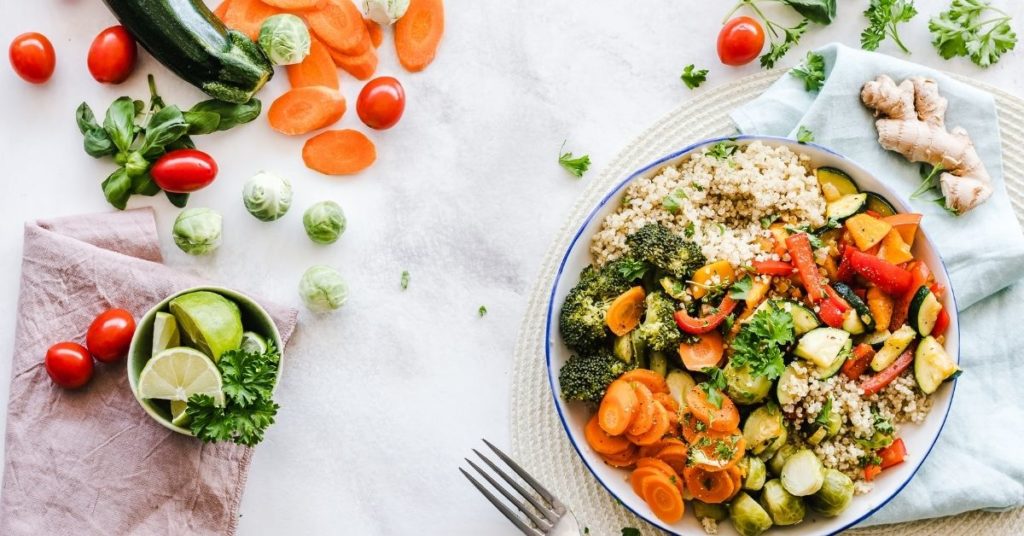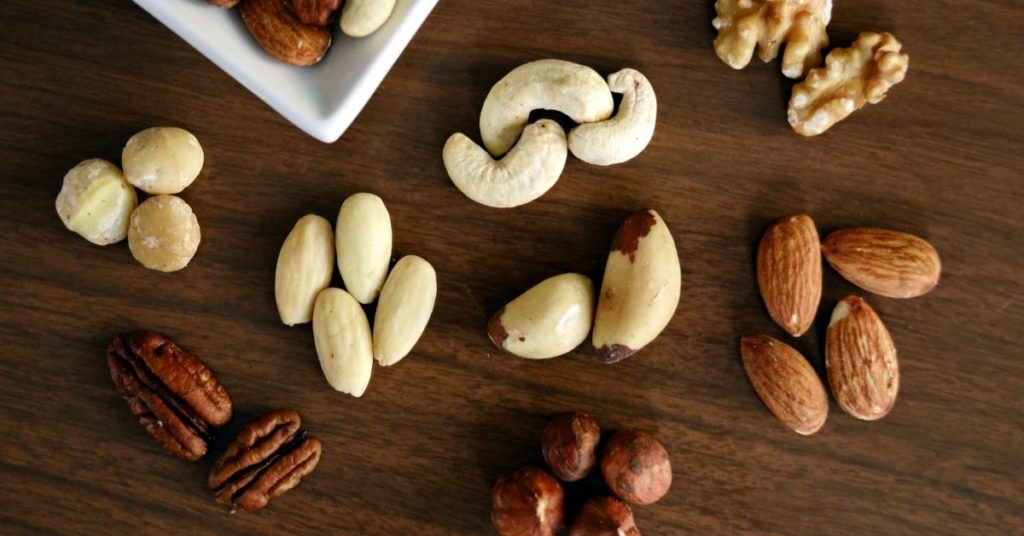
Eating More Plants Can Benefit Your Health
Are you planning out your health and wellness goals for the New Year? Let’s take a look at the benefits of a plant-based diet – not only with overall health, but also with managing your weight. A diet rich in plants can additionally reduce your environmental footprint which is ultimately greater when selecting a mostly animal heavy diet.
Going plant-based is not so much a “diet,” but an approach to eating. There is no need to count calories or worry about meeting macro-nutrient requirements. It just means trying to eat more plant- versus animal-based foods.
Going plant-based is not so much a “diet,” but an approach to eating.

What Is Plant-Based Eating?
There are different interpretations of this approach to eating:
- Vegetarian Diet: Individuals who are vegetarian may eat cheese, eggs, and milk, but they do not eat meat, such as chicken, pork, and beef. Instead of meat, they consume more plant-based protein like legumes, seeds and nuts.
- Vegan Diet: These people do not eat any animal products (including milk, cheese, and honey) and exclusively eat plants as part of a vegan lifestyle.
- Raw Vegan Diet: Others may follow the aforementioned rules and eat only raw, plant-based foods.
- Flexitarian Diet: Some people are more flexible. They try to simply cut down on their meat intake and eat a diet that’s primarily filled with plants, but still have some animal products here and there.
When looking at vegetarian or vegan eating patterns we notice the majority of foods in this approach to eating come mainly from whole grains, vegetables, fruits, and legumes. These are all carbohydrates that provide energy and important vitamins and minerals for cellular function and immunity. These are foods that are rich in fiber which help not only feed good gut bacteria, but are also satiating so that you can keep the unnecessary munchies at bay.
Top Benefits of a Plant-Based Diet
Let’s look at 3 benefits of a plant-based diet:
- A Plant based diet can lower blood pressure. High blood pressure or hypertension can increase your risk of heart disease, stroke and type 2 diabetes, according to the Physicians Committee for Responsible Medicine. The foods we eat can make a difference in lowering these risks. A meta-analysis published in April 2014 in JAMA Internal Medicine explored data from 39 studies and concluded that people who followed a vegetarian diet had lower blood pressure on average than those who followed omnivorous diets, meaning those including plants and meat.
- A plant-based diet may help prevent type 2 diabetes. It’s well known that there’s a link between diet and type 2 diabetes. Weight is a major risk factor since more fatty tissue makes the cells more resistant to insulin, according to the Mayo Clinic. Studies suggest that eating a plant-based diet filled with high-quality plant foods reduced the risk of developing type 2 diabetes by 34 percent. This probably stems from the fact that there is less saturated fats in plants versus animal foods. Saturated fats can raise cholesterol levels and thus increase your risk of developing type 2 diabetes, notes the American Diabetes Association.
- A plant-based diet can help you manage your weight. Your risk of obesity decreases when you swap a meat-heavy diet for a plant-based one. Plant eaters tend to weigh less, even if that’s not always the number one goal. The goal is usually to better nourish your body, but weight loss may be a by-product of replacing meat products with plant-based ones. A study by Diabetes Care, found substantial weight differences between non-meat eaters and meat eaters. Vegans had an overall lower BMI (23.6) than nonvegetarians, (BMI: 28.8), which qualifies as overweight, according to the National Heart, Lung, and Blood Institute. Moreover, according to a small study published in March 2017 in Nutrition & Diabetes, 65 overweight adults who followed a whole-food, plant-based diet for one year lost 9.25 pounds on average. One reason for the weight loss is that whole grains, vegetables and fruit, contain fiber, which helps prolong fullness, according to data cited in a study published in January 2016 in the Journal of General Internal Medicine.

But Will A Plant-Based Diet Give Me Enough Protein and Calcium?
Plant-Based Diets & Protein
Yes! Plant foods have plenty of protein. An average woman needs 46 grams of protein per day, and the average man needs 56 grams. Even if you decide to follow a vegan diet, you can get plenty of protein from legumes and whole grains. Legumes contain all types of beans like black beans, kidney beans, black-eyed peas, lentils, soybeans (tempeh, tofu, edamame) as well as garbanzo beans and hummus. Excellent protein sources include beans, lentils, nuts, seeds and some grains like quinoa and farro.
If you are worried you are not getting enough complete protein (protein that contains all 9 essential amino acids which are building blocks of proteins and are naturally found in meat), please consider adding the following foods to your daily diet:
- Quinoa
- Tofu, tempeh, edamame
- Amaranth
- Buckwheat
- Ezekiel bread
- Hemp seeds
- Chia seeds
- Rice and Beans
Plant-Based Diets & Calcium
If your diet does not include dairy, plant-based sources of calcium can include broccoli, kale, collard greens, mustard greens, beans, figs, almonds, fortified orange juice, as well as fortified cereals and milk. Although these sources contain calcium, they do not have as much calcium as their dairy counterparts, so including fortified plant-based milks in your diet, may get to you your allotment for the day. The average adult needs about 1,000 mg of calcium daily.
A Word About Vitamin B12
- Vitamin B12 is only found in animal products and fortified foods, such as cereals and non-dairy milks. All vegans should take 250 mcg per day of a B12 supplement.
- All lacto-ovo vegetarians should consider taking 250 mcg per day of a B12 supplement a few times per week. All vegans should take 250 mcg per day of a B12 supplement.

Here’s the Bottom Line On the Benefits of A Plant-Based Diet:
A diet rich in plant sources can decrease the amount of saturated fat in your diet, boost the fiber as well as antioxidants, vitamins and minerals your body needs. Make sure to include plant-based protein with your whole grains and vegetables at every meal, in order to promote satiety and help manage your weight.
A first step towards this pattern of eating is making a commitment to add 1-2 vegetarian or vegan meals to your weekly meal rotation. You’ll be happy you did!
If you need an advisory on plant-based dieting or managing your weight, please contact me! It’s what I do.





